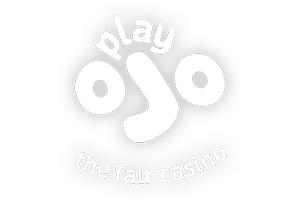South African Rand Casinos
The South African rand was officially adopted in South Africa in 1961. Despite going up and down due to various crises over the last few decades, the rand has remained relatively stable over the last few years. The currency is highly susceptible to losses, slides and shifts in value, primarily due to government post changes and its decision to rely on foreign cash to cover its budget and deficits. Despite all this, the South African rand remains a firm favourite amongst African bettors in the online casino sector.
For the time being, South African players must be content with playing at offshore or foreign casinos. We have scoured the net looking for the best ones for you to play. Amongst those casinos that you may wish to have a crack at are those listed ZAR online casinos listed below…
Casino List with ZAR Currency
About South African Rand in Gambling
South Africa does not have a legal and fully regulated online gambling sector. However, it does not make much effort in shutting out foreign operators from catering to the South African market. Because of this, the rand is commonly found at major international online casinos. Moreover, billions of rand are spent each year on internet gambling. As the currency is widely available and tradeable outside of its host nation, players in other African countries also tend to migrate towards the ZAR when betting online.
Which Countries Use South African Rand?
The South African rand is naturally the national currency of South Africa, but that is not the only country to use the currency.
Other African nations known for officially using the ZAR include:
- Eswatini
- Lesotho
- Namibia
A handful of other African countries also use the South African rand in an unofficial capacity, such as for online betting. These include:
- Angola
- Malawi
- Zambia
- Zimbabwe
Online Gambling in South Africa
South Africa has a very muddled history with gambling. The very first Gambling Act was passed in 1965, effectively outlawing all forms of gambling, barring horse racing. The National Gambling Act of 1996 ensured that several casinos and lotteries were able to operate in the country, assuming they obtained a South African license. Things took a turn for the worst in 2004 when online casino gambling effectively became illegal.
In 2008, the National Gambling Amendment Act made it a priority to legalise online gambling, but this was negated two years later, after a ruling from the Gauteng High Court. Finally, in 2014, the Remote Bill 2014 was passed. This was designed to mimic the Australian Interactive Gambling Act (2001) and would permit players to wager at casinos online, assuming operators obtained a license from South Africa’s National Gambling Board, did so on a province-to-province basis, and that no credit could be used.
Despite being passed almost a decade ago, none of this has yet come to fruition. As such, players must visit offshore South African rand casinos to bet online, something that many South Africans can do freely without fear of prosecution.
Popular Deposit and Withdrawal Methods with ZAR
Players in South Africa can use rand to deposit at many international casinos. Various payment methods are open to them for doing so, and these include:
- Credit/debit cards (VISA and MasterCard and common, Maestro is not widely available)
- Bank transfers (EasyEFT and local banks such as ABSA, Nedbank, Investec, Standard Bank and Capitec have proven popular. SID instant EFT is another option worth exploring)
- E-Wallets (Skrill, EcoPayz and Neteller main the most popular)
Of course, if you are based outside South Africa and want to deposit at ZAR online casinos using rand, you can do so. You may also find a wider array of deposit methods at your disposal. Note that some South African bank transfer options may come with deposit and/or withdrawal fees, but this can vary from ZAR casino to casino.








